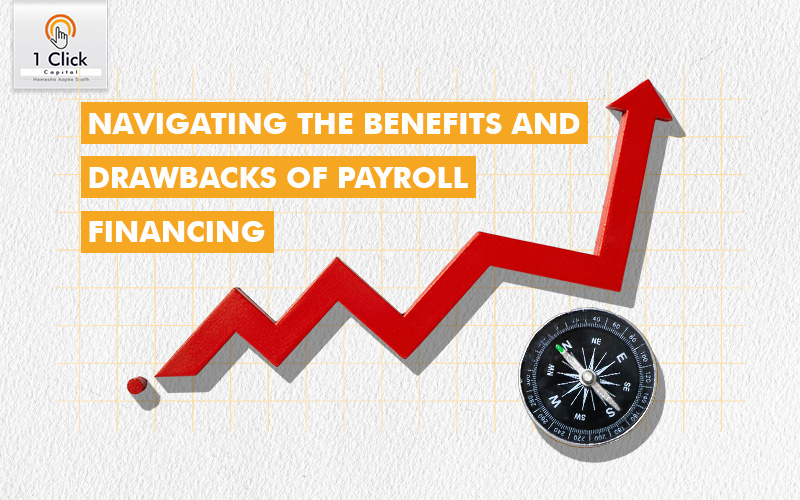Business operations involve a multitude of management and regulatory aspects. Among the diverse aspects of business operations, payroll stands as a prominent and significant factor. As businesses grow, the working capital alongside other expenses increases which disrupts finances.
What is Payroll Financing?
Payroll financing is a financial aid service which provides businesses with the required capital aid to meet their payroll obligations. Payroll financing provides immediate funding to companies especially small to medium-sized enterprises (SMEs) or businesses with fluctuating cash flows.
Payroll financing allows businesses to ensure cash flow stability, seamless business operation, retain their employees with timely salary accreditation, and have sufficient time to navigate temporary cash flow challenges. This facility provides flexibility to businesses for managing and regulating unexpected expenses without causing turbulence or disrupting the payroll schedule.
Advantages of Payroll Financing
Payroll financing enables businesses to maintain a timely, and stable salary accreditation schedule, however, there are several more advantages of payroll financing which are:
- Prompt working capital access: Payroll financing powers cash flow stability in businesses which helps them to cover payroll expenses and ensure that employees are accredited with their respective salaries even during cash flow crunches.
- Facilitates financial stability: Running a business involves planned as well as unforeseen expenditures which may take a toll on the organisation’s finance pool. Payroll financing allows for business owners to bring back financial stability in their business by prompt access to funds for covering payroll expenses.
- Zero collateral requirement: Majority payroll financing firms do not require collateral as a criteria for acquiring the financing option. The absence of collateral requirements makes it easy for businesses to acquire financial aid.
- Flexible options: Payroll financing has flexible terms which can be adapted as per the requirements of the business availing the facility. The flexibility feature of payroll financing allows for businesses to take advantage of tailored solutions thereby improving their user experience.
- Hassle-free processing: With an easy application and disbursement procedure of payroll financing, businesses can be assured of gaining quick access to funds for covering their payroll obligations prior to deadlines.
Drawbacks of Payroll Financing
Despite being loaded with essential features, availing payroll financing may have some drawbacks or cons which are as follows:
- Restricted fund utilisation
Payroll finance may constrain the distribution of funds to specific operational requirements, potentially limiting flexibility in resource usage and impeding strategic investment options.
- Short repayment period
Payroll financing is a short-term financing option which encompasses a relatively short repayment period. This squeezed repayment period can potentially strain cash flow, particularly if the company’s revenue fluctuates or incurs unanticipated expenses.
- Comparatively high interest rates
Payroll financing offers prompt access to capital but at comparatively higher interest rates than traditional bank loans and financial services. High interest rates can significantly reduce the profitability of the business thereby straining overall finances.
- Limited accessibility
The eligibility criteria for payroll financing can restrict businesses. Some lenders require the applicants to have a good credit score and any business which fails to meet this requirement is ineligible for the financing which limits its accessibility significantly.
- Risks of revenue dependency
Payroll financing is typically connected to a company’s revenue as lenders consider the revenue figures to be determinants of whether the business possesses relevant funds to repay the borrowed capital. This criteria of revenue dependency can be problematic especially for businesses that work in uncertain and fluctuating domains.




